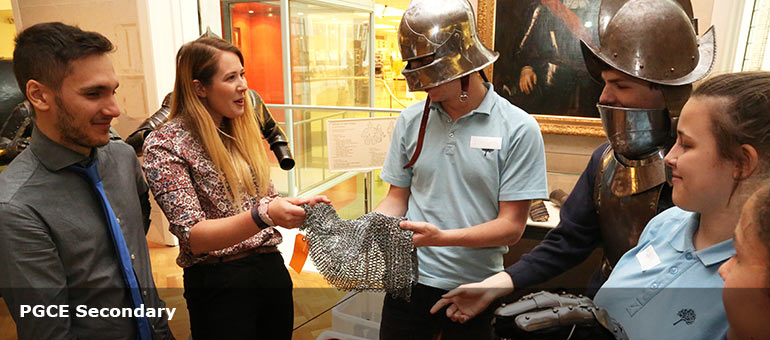
The PGCE at Cambridge is second to none! An inspirational course that both challenges and develops your skills as a teacher. It's one of most fantastic years of your life and prepares you for the joys and challenges of teaching.
...the Cambridge PGCE course gave us a lot of variety and choice when it came to our teaching practice.
...specialist guest speakers from all over the UK gave us a great variety of subject knowledge.
Course overview
There are three integrated aspects to our secondary courses which prepares PGCE students to teach across the whole 11-19 age range: Subject Studies, Professional Studies and Professional Placements.
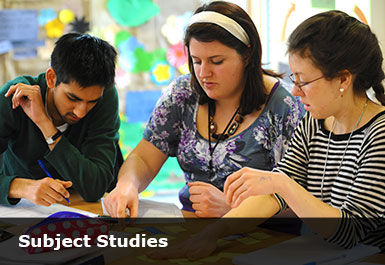
Subject Studies
Subject Studies focuses on the teaching and learning of your subject. You will acquire competencies that are specific to your subject, learn how your subject is framed by the requirements of the curriculum, and explore teaching and learning approaches which support students’ learning of your subject.In the first term, and early in the second term, PGCE students generally spend two days a week working in their subject groups in seminars and workshops. You will build your pedagogical thinking by developing a critical understanding of scholarly and professional research and key issues in the teaching, learning and assessment of your subject, working with subject lecturers who are highly qualified professionals and academics, and who often play a leadership role nationally and internationally in their own subject communities. In the third term, you build on this foundation, to incorporate alternative contexts and approaches to teaching and learning in your subject; examples include museum-based learning, subject education in special schools, and cross-curricular approaches to learning.
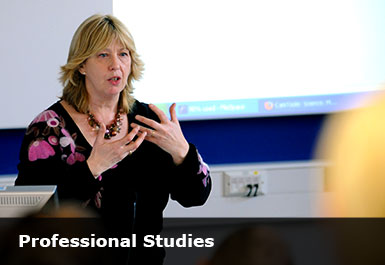
Professional Studies
The Professional Studies course is concerned with those aspects of teaching which are relevant across all subjects. It is taught in Faculty through a series of lectures, workshops and conferences, and in Partnership schools through weekly seminars, providing opportunities for students to work in a range of inter-disciplinary groups. During the course, students explore wider educational issues to complement subject studies work and to clarify the critical interplay between theory and practice in education. The course is concerned with an integrated study of fundamental educational ideas and their relationship to classroom issues, focusing on common aspects of teaching and the general professional role of the teacher, and drawing on educational research. Some of the areas covered are:- curriculum design, planning, implementation and evaluation;
- behaviour for learning;
- the assessment of pupil learning;
- approaches to pupil grouping;
- inclusion, particularly of students with special educational needs and disabilities and English as an additional language;
- decolonial and anti-racist education;
- health education, drugs education, sex education;
- citizenship and social moral, spiritual and cultural education;
- the role of the pastoral tutor;
- teacher and student wellbeing;
- children, teachers, parents and the law.
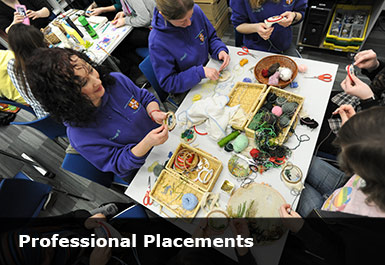
Professional Placements
PGCE students spend at least 120 days of the course in Partnership schools. Your two main school placements will enable you to develop and contextualise your understanding from subject studies and professional studies, developing and refining your pedagogical thinking and practice. You will build your competence and confidence by reflecting systematically, thoughtfully and critically on the nature and quality of pupils’ learning, with the support of expert mentors and professional tutors in school. During the second professional placement, you will undertake your own original research project in an aspect of subject teaching and learning.PGCE students have the opportunity to work with experienced mentors to develop their own practical teaching skills and competence, gradually taking on more responsibility for planning and teaching as the year progresses, and gaining experience of many of the important tasks and responsibilities teachers take on outside the classroom, such as pastoral care and parents' evenings.
In the final part of the course, there is also the opportunity for PGCE student involvement in a wider range of school activities: for instance, curriculum development and evaluation within their specialist subject(s); work experience and other activities related to careers education and economic and industrial understanding; fieldwork related to environmental education; and other similar activities which seek to extend the experience and education of pupils beyond the conventional classroom context.
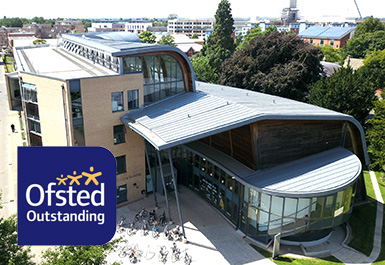
We are outstanding
Our latest 2024 Ofsted report rates the Faculty of Education teacher education as outstanding.
We are the number one provider in England in the latest Good Teacher Training Guide.
